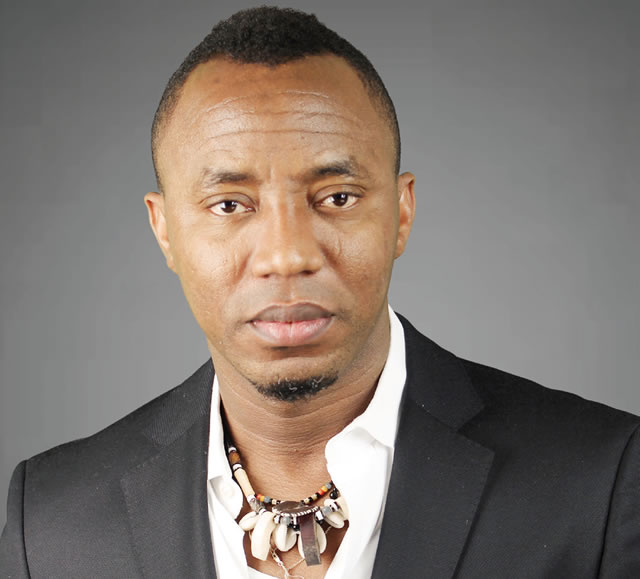Omoyele Sowore, a prominent Nigerian politician and human rights activist, finds a profound connection between long-distance running and his activism. He views the marathon as a powerful metaphor for resilience, a quality crucial for navigating the challenges and setbacks inherent in fighting for justice. Just as a marathon runner pushes through physical exhaustion, relying on mental fortitude to reach the finish line, Sowore draws upon inner strength to persevere in the face of adversity, whether it be imprisonment, isolation, or the constant pressure of advocating for what is right. Beyond the personal connection, Sowore recognizes the unifying power of sports, its ability to transcend social barriers and bring people together regardless of their background, ethnicity, or physical abilities. He sees sports not only as a shared human endeavor but also as a lucrative industry with immense potential for economic growth.
Sowore laments the untapped potential of Nigeria’s sports sector, particularly given the country’s abundant human resources. He envisions a Nigeria where athletes from all regions excel in their respective disciplines, from swimming in the Niger Delta to marathon running in the north and football throughout the country. Drawing inspiration from the Favelas of Brazil, where impoverished communities have produced world-renowned athletes, Sowore believes that investing in sports infrastructure and programs can provide opportunities for young people, steer them away from crime and cultism, and ultimately contribute to national pride and economic prosperity. He envisions a future where a single talented athlete can generate more revenue than an oil company, highlighting the transformative potential of sports development.
Sowore’s involvement in sports extends beyond mere participation. He actively engages with the running community, connects with elite runners and organizers, and offers advice behind the scenes. He even organizes a marathon in his village every New Year’s Day, hoping to inspire similar initiatives at the local government level. His passion for running is evident in his personal marathon journey, which began in 2013. Since then, he has participated in numerous marathons across the United States and Nigeria, including races in Miami, Philadelphia, New York, and Lagos, as well as several 10km and half-marathon events.
The Lagos City Marathon presents unique challenges for runners due to the demanding weather conditions. The heat poses a significant obstacle, making long-distance running in Lagos particularly tough. Despite the difficulties, Sowore has persevered, completing the full 42km marathon in Lagos and participating in multiple editions of the 10km race. He views his participation in the Lagos marathon as more of a fun experience rather than a competitive pursuit. His personal best marathon time, three hours and fifty minutes, was achieved at the New York Marathon, a feat he acknowledges may be difficult to replicate due to age.
Sowore’s connection to sports dates back to his youth. Although a leg injury at age 16 curtailed his football aspirations, he excelled in swimming, representing his university hostel in competitions and earning a spot on the team for the Nigerian University Games (NUGA). However, his expulsion from university due to his political activism prevented him from participating in the games. Despite this setback, his passion for sports remained undimmed, fueled by a broader commitment to social change.
While Sowore acknowledges a lapse in following the local Nigerian football league, he fondly recalls the vibrant football scene of his youth, with numerous clubs across different states and cities fielding talented players who often represented the national team. He laments the decline of this once-thriving football culture. He believes that government involvement in sports, complemented by private investment, is crucial for revitalizing the sector. He argues that government support for sports should be viewed as an investment, similar to bailouts provided to other industries, given the potential for economic and social returns. He dreams of Nigeria hosting the Olympic Games, believing that such an event could significantly transform the nation’s sporting landscape.
Sowore recounts attending a Lionel Messi match in New Jersey as a recent highlight among the sporting events he has witnessed, emphasizing the global influence and appeal of such events. He hopes for a resurgence of similar sporting fervor in Nigeria, encouraging support for local teams over foreign clubs. When asked about his favorite Nigerian athlete, he names Segun Odegbami, a legendary footballer who inspired a generation. He also follows younger athletes but prefers to reserve judgment until their careers conclude.
Sowore expresses strong views on the appointment of a Franco-Malian coach for the Super Eagles, attributing this decision to a colonial mentality that seeks external validation. He contends that Nigeria has ample coaching talent within its vast population and emphasizes the need to prioritize local expertise over foreign appointments. He dismisses accusations of racism, framing his stance as a matter of national pride and self-reliance.


